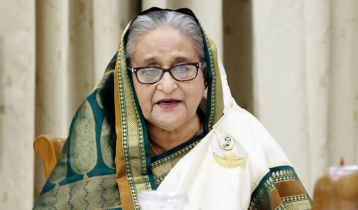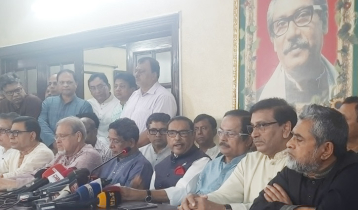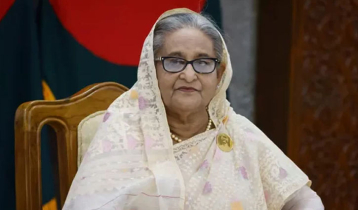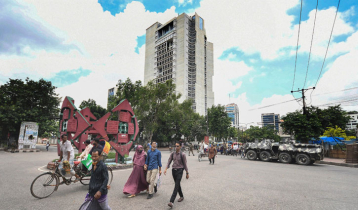A book on Japan-Bangladesh diplomatic relations
Desk Report || risingbd.com

The 50th anniversary of Japan-Bangladesh diplomatic relations has marked 50 glorious years and has set a benchmark in the latter’s history by accelerating advancement in cooperation, research, and development.
As the first-ever area studies arena, the author takes the privilege to publish this book that intends to review the past, examine the present and focus on the future of Japan-Bangladesh diplomatic relations.
This book intends to outline various aspects of the Japan-Bangladesh relations for continuous development of the bilateral ties with a vision to produce one of the pioneering research-based academic resources for Japanese Studies in Bangladesh. One of the fundamental objectives of the book is to explore and examine the Japan-Bangladesh comprehensive relations to understand Japan’s miraculous development models and apply them in Bangladesh’s development policy initiatives and planning to achieve the SDGs by 2030 and ‘Vision 2041’.
This book compiles ten research-based chapters intending to apply them as shared knowledge for the sustainable relations of Bangladesh-Japan. The chapters review the development of Bangladesh-Japan relations in line with the current global trend of bilateral relations. The chapters of the book attempt to make a comparative study among the South Asian countries with relevant policy recommendations for further improvement of the said bilateral relations. However, asymmetric in nature, many academia and a cross-section of people in Bangladesh believe that the Japanese economic development model should be replicated in Bangladesh. To explore those possibilities, a couple of chapters of this book revisited Bangladesh-Japan’s comprehensive diplomatic relations since the former’s independence would simultaneously strengthen the bilateral relations between the two nations.
Japan and Bangladesh are two very distinct Asian nations. Japan is in the east of Asia, and in the south, Bangladesh is situated. While Japan is an island country, the delta of Bangladesh has its fair share of marine and natural resources. Despite being a distant neighbour, Japan is one of the largest ODA donors in the South Asian region. Likewise, the Japanese ODA has been essential to Bangladesh’s potential to progress towards socio-economic and sustainable development. In addition to the generous ODA disbursement, Japan is also one of the major foreign investors in Bangladesh. A key reason for Japan’s decision to invest more in Bangladesh is the geopolitical significance of the latter. Again, Japan was a vital supporter of Bangladesh's independence during the latter's liberation war in 1971 and was one of the first nations to recognize Bangladesh as a sovereign state. Since then, Japan and Bangladesh have maintained a cordial relationship, and the bilateral relations continue to flourish till now. Even though Japan-Bangladesh bilateral relations have been established for 50 years, the bilateral ties date much further. The cultural aspects between Japan and Bangladesh are different, but the Japanese nationals have been influencing their Bangladeshi counterparts with their excellent business and work ethics for decades. The bilateral relations between Japan and Bangladesh have shown moral development from a patron-client relationship to a full-fledged strategic partnership. As a part of the partnership, several megaprojects are currently underway in Bangladesh with the assistance of Japan.
This book’s justification is rooted in its multi-fold grounds- academic, research, and policy contributions. This book might be considered a living manuscript of Japanese Studies in Bangladesh that contains the past review, an outline of the present, and guidance for the future. This book might set a milestone in the 50th Anniversary of Japan-Bangladesh relations. Further, it is expected to contribute to academic streams such as Japanese Studies, Political Science, International Relations, Economics, Sociology, Development Studies, and International Development Cooperation, to mention a few. It intensifies as it outlines the role of Japan-Bangladesh relations in achieving the development goals of Bangladesh, initially SDGs by 2030 and ‘Vision 2041’ by 2041. Concurrently, Japanese development models and experiences summarized by the contributors would immensely contribute to the policymaking, policy implementation, and reforms in Bangladesh’s development initiatives. Besides, this book would provide the foundation of ground-breaking research in this new field. It would contribute to the development efforts of Japan-Bangladesh relations in materializing the ‘Vision-2041’.
The target audience of this book includes academia, researchers, professional organizations, policymakers, and government officials. This book, in particular, would be a centrepiece for students and social science researchers, which would help them understand the past, present, and future trends of Japan-Bangladesh relations. Hopefully, it might be treated like a treasure to the undergraduate, graduate, and post-graduate students. It would simultaneously provide the foundation for research on area studies, especially in Japan and East Asia. Besides, the target audience includes policymakers, government officials, international development partners, and stakeholders who might collect robust indications of future Japan-Bangladesh diplomatic relations.
Sony/Nasim





































